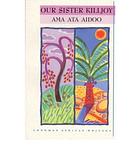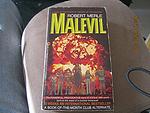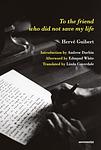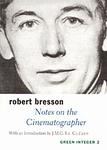The Greatest Ghanaian, Russian, French Books Since 1970
Click to learn how this list is calculated.
This list represents a comprehensive and trusted collection of the greatest books. Developed through a specialized algorithm, it brings together 305 'best of' book lists to form a definitive guide to the world's most acclaimed books. For those interested in how these books are chosen, additional details can be found on the rankings page.
Genres
Countries
Date Range
Reading Statistics
Click the button below to see how many of these books you've read!
Download
If you're interested in downloading this list as a CSV file for use in a spreadsheet application, you can easily do so by clicking the button below. Please note that to ensure a manageable file size and faster download, the CSV will include details for only the first 500 books.
Download-
1. The Gulag Archipelago by Aleksandr Solzhenitsyn
"The Gulag Archipelago" is a comprehensive and stark account of the Soviet Union's forced labor camp system. The narrative, based on the author's own experiences as a prisoner and on extensive research, documents the history, operation, and life inside the Gulag system. It also provides a critical examination of the regime's legal system, police operations, and political leadership. The book is an intense indictment of the Soviet Union's totalitarian regime, revealing its brutality, inhumanity, and vast scale of its prison camp network.
The 193rd Greatest Book of All Time -
2. The Lover by Marguerite Duras
"The Lover" is a poignant exploration of forbidden love, power dynamics, and colonialism. Set in 1930s French Indochina, it tells the story of a tumultuous and passionate affair between a 15-year-old French girl and her wealthy, older Chinese lover. The narrative delves into the complexities of their relationship, the societal norms they defy, and the inevitable heartbreak that follows. The protagonist's struggle with her family's poverty and her mother's mental instability further complicates the story, making it a compelling exploration of love, desire, and societal constraints.
The 299th Greatest Book of All Time -
3. Life and Fate by Vasily Grossman
"Life and Fate" is a sweeping epic that explores the human condition during the Siege of Stalingrad in World War II. The novel delves into the lives of a wide range of characters, from soldiers and scientists to children and victims of the Holocaust, providing a stark and unflinching portrayal of the horrors of war, the brutality of totalitarianism, and the resilience of the human spirit. At the same time, it also examines themes of love, loss, and the struggle for freedom and dignity in the face of overwhelming adversity.
The 439th Greatest Book of All Time -
4. Life, a User's Manual by Georges Perec
The novel explores the lives of the inhabitants of a Parisian apartment block through a complex, multi-layered narrative. It delves into the interconnected stories of the building's residents, revealing their secrets, desires, and disappointments. The narrative is structured like a puzzle, with the author employing a variety of literary styles and devices, making it a complex and intriguing exploration of human life.
The 451st Greatest Book of All Time -
5. The Elementary Particles by Michel Houellebecq
"The Elementary Particles" is a provocative novel that explores the lives of two half-brothers, one a molecular biologist and the other a disenchanted teacher, against the backdrop of late 20th-century France. The narrative delves into their personal struggles and emotional turmoil, resulting from their dysfunctional upbringing by a self-absorbed, hedonistic mother. Throughout the novel, the author uses their stories to critique contemporary society, touching on themes such as sexual liberation, consumerism, and the decline of traditional values. The book also delves into the implications of scientific advancements, particularly in the field of molecular biology.
The 908th Greatest Book of All Time -
6. Discipline and Punish by Michel Foucault
This book delves into the historical evolution of the penal system, examining how Western societies have transitioned from a regime of violent, public physical punishment to a more subtle form of surveillance and control. It introduces the concept of the "panopticon," a metaphor for modern disciplinary societies that exercise power through observation and normalization rather than through overt physical coercion. The work explores the relationship between power, knowledge, and social control, arguing that disciplinary mechanisms are embedded in various institutions, such as schools, hospitals, and prisons, shaping individuals and maintaining order in society.
The 1065th Greatest Book of All Time -
7. Moscow Petushki by Venedikt Yerofeev
The book is a surreal and satirical narrative that takes the reader on a tragicomic journey aboard a suburban train from Moscow to the small town of Petushki. The protagonist, a disillusioned intellectual and alcoholic, engages in philosophical musings and encounters a variety of eccentric characters, each embodying different aspects of Soviet life. As he delves into ruminations on love, suffering, and the search for meaning amidst the absurdities of existence, the journey becomes a metaphor for the human condition and the societal decay of the USSR, blending dark humor with poignant introspection.
The 1169th Greatest Book of All Time -
8. Delta of Venus by Anaïs Nin
"Delta of Venus" is a collection of fifteen short stories that explore the nature of human sexuality and eroticism. Set in various locations around the world, the book delves into a wide range of sexual experiences and desires, from the conventional to the taboo. The stories are as much about the psychology of desire and the power dynamics inherent in sexual relationships as they are about the act itself, and they are written in a lush, poetic style that is both explicit and deeply introspective.
The 1253rd Greatest Book of All Time -
9. Platform by Michel Houellebecq
"Platform" is a provocative novel that explores the intersections of sex, business, and terrorism. The protagonist, a middle-aged man working in the French Ministry of Culture, embarks on a journey to Thailand after the death of his father. While there, he falls in love with a travel executive and they start a business capitalizing on sex tourism. However, their venture is violently disrupted by an extremist group, leading to tragic consequences. The novel is a critique of Western consumerism and a commentary on the clash between Western and Islamic cultures.
The 1401st Greatest Book of All Time -
10. Suite Française by Irène Némirovsky
"Suite Française" is a two-part novel set during the early years of World War II in France. The first part, "Storm in June," follows a group of Parisians as they flee the Nazi invasion. The second part, "Dolce," shows life in a small French village under German occupation. The novel explores themes of love, loss, and survival, and provides a unique perspective on life in France during the war. The book was written during the war but was not discovered and published until many years later.
The 1503rd Greatest Book of All Time -
11. W, or the Memory of Childhood by Georges Perec
"W, or the Memory of Childhood" is a unique blend of autobiographical recollections and fictional narrative. The novel alternates between two storylines: one describing the childhood of a Jewish boy during World War II, and the other detailing a dystopian society on a mysterious island known as "W". The book explores themes of memory, trauma, and the loss of innocence, while also offering a critique of totalitarian regimes. The two narratives gradually converge, revealing the traumatic underpinnings of the protagonist's life and the allegorical nature of "W".
The 1753rd Greatest Book of All Time -
12. Our Sister Killjoy by Ama Ata Aidoo
This novel explores the journey of a young African woman who travels to Europe on a scholarship, only to confront the stark realities of neocolonialism and the African diaspora's experiences in the West. Through her eyes, readers are exposed to themes of identity, alienation, and the complexities of cultural assimilation. The protagonist's observations and interactions challenge the romanticized views of Europe, offering a critical examination of the impacts of colonialism and the ongoing struggle for self-definition and autonomy among Africans both at home and abroad. The narrative is a poignant critique of postcolonial society, delivered through a blend of prose and poetry that captures the protagonist's internal and external conflicts.
The 1818th Greatest Book of All Time -
13. The Bridge Of Beyond by Simone Schwarz-Bart
This novel is an evocative portrayal of several generations of women in Guadeloupe, a tapestry of their joys, sufferings, and resilient spirits against the backdrop of post-slavery Caribbean society. The story centers on the life of Telumee, the last in a line of proud Lougandor women, as she navigates the complexities of love, poverty, and the lingering effects of colonialism. Rich in Creole culture, the narrative weaves together the supernatural with the everyday, creating a lyrical and poignant exploration of the enduring human spirit and the bonds of family, tradition, and heritage that shape our destinies.
The 1825th Greatest Book of All Time -
14. Summer in Baden-Baden by Leonid Tsypkin
"Summer in Baden-Baden" is a unique blend of fact and fiction that intertwines the author's own travels to Leningrad with a reimagining of Fyodor Dostoevsky's summer in Baden-Baden, Germany. The narrative shifts between the two journeys, exploring themes of obsession, identity, and the power of literature. The author's fascination with Dostoevsky serves as a lens through which he examines his own life and experiences as a Jew in Soviet Russia, while also providing a fresh perspective on the famous Russian author's life and works.
The 1840th Greatest Book of All Time -
15. Malevil by Robert Merle
Set in the aftermath of a devastating nuclear war, the novel follows a group of survivors who find refuge in a medieval castle named Malevil. The survivors, led by the protagonist, must navigate the challenges of rebuilding their lives in a drastically altered world. They grapple with issues of survival, community, morality, and leadership as they encounter other groups of survivors with different philosophies and intentions. The story is a gripping exploration of human resilience, the will to maintain civilization, and the complexities of interpersonal relationships in a post-apocalyptic setting.
The 1917th Greatest Book of All Time -
16. The First Man by Albert Camus
"The First Man" is a semi-autobiographical novel that explores the life of a man named Jacques Cormery, who grows up in poverty in Algeria, loses his father at a young age, and struggles with his relationship with his illiterate mother. The narrative delves into themes of identity, memory, and the human condition, as Jacques attempts to understand his past and his father's life, while simultaneously grappling with the harsh realities of colonial Algeria. Despite the challenges, Jacques remains determined to rise above his circumstances through education and personal growth.
The 2078th Greatest Book of All Time -
17. Homegoing by Yaa Gyasi
This epic novel traces the lineage of two half-sisters from 18th century Ghana to present day America. One sister is sold into slavery and shipped to America, while the other is married off to a British slaver and remains in Africa. The book follows their descendants through the generations, exploring the lasting impact of slavery and colonialism on Black lives. The narrative showcases the struggles, resilience, and triumphs of each generation, providing a deep and personal view into the historical events and societal changes that shaped their lives.
The 2182nd Greatest Book of All Time -
18. The Life Before Us by Romain Gary
The novel is a poignant exploration of the bond between a young Arab boy, Momo, and an elderly Jewish woman, Madame Rosa, who is a Holocaust survivor and former prostitute. Living in the Belleville neighborhood of Paris, Madame Rosa takes care of the children of other prostitutes, and Momo becomes her protégé and closest companion. Through their relationship, the story delves into themes of love, loss, and the resilience of the human spirit in the face of adversity. The narrative, told from Momo's perspective, captures the struggles and the multicultural tapestry of life in a Parisian slum, while also addressing the weight of history and the complexity of identity and belonging.
The 2213th Greatest Book of All Time -
19. The Clay Machine-gun by Victor Pelevin
"The Clay Machine-gun" is a surreal and complex novel that explores the nature of reality and illusion. The story is set in post-Soviet Russia and follows a protagonist who has multiple identities, including a poet in 19th-century Russia, a 20th-century psychiatric patient, and a 21st-century advertising executive. The narrative moves between these identities and realities, blurring the lines between them and creating a layered and philosophical exploration of Russian society, identity, and the human psyche.
The 2275th Greatest Book of All Time -
20. To The Friend Who Did Not Save My Life by Hervé Guibert
The book is a candid and harrowing autobiographical novel that chronicles the life of a man grappling with the devastating impact of AIDS during the early years of the epidemic. Through a blend of fact and fiction, the narrative delves into the protagonist's personal experiences with illness, the medical establishment, and the emotional complexities of friendship and mortality. As he confronts his own declining health, the protagonist reflects on the relationships with those around him, including a close friend who is also facing the disease, and the betrayal he feels when a promised miracle cure fails to materialize. The novel is a raw and poignant exploration of the human condition in the face of an unforgiving illness.
The 2365th Greatest Book of All Time -
21. August 1914 by Aleksandr Solzhenitsyn
"August 1914" is a historical novel set during the early days of World War I, focusing on the disastrous Battle of Tannenberg on the Eastern Front. The book provides a detailed portrayal of the Russian army's defeat, largely due to incompetent leadership and lack of communication. The narrative also delves into the lives of the soldiers and civilians involved, offering a broad examination of Russian society and the impending revolution.
The 2409th Greatest Book of All Time -
22. Happy Moscow by Andrey Platonov
"Happy Moscow" is a satirical novel set in the Soviet Union during the height of Stalinist rule, following the life of a young woman, Moscow Chestnova, who is named after the capital city. Despite the harsh realities of life under an authoritarian regime, she maintains a positive and optimistic outlook, symbolizing the Soviet Union's propaganda that promoted an image of a happy and prosperous society. The novel, through its characters and their experiences, explores the paradoxes and contradictions of the Soviet society, challenging the official narrative of happiness and prosperity.
The 2762nd Greatest Book of All Time -
23. Soul and Other Stories by Andrey Platonov
"Soul and Other Stories" is a collection of short stories that delve into the human condition and the struggle for identity in a world filled with political and social upheaval. The stories are set in a variety of contexts, from the harsh landscapes of Central Asia to the chaos of the Russian Revolution. The characters are often faced with existential crises, grappling with questions of purpose, meaning, and morality. The narrative is marked by a unique blend of philosophical inquiry, poetic prose, and a deep sense of empathy for the human plight.
The 2892nd Greatest Book of All Time -
24. Notes On The Cinematographer by Robert Bresson
"Notes on the Cinematographer" is a collection of aphoristic insights and reflections that delve into the art and philosophy of film-making. Compiled from the personal working notebooks of a renowned filmmaker, the book offers a unique exploration of the aesthetic and technical aspects of creating cinema. It emphasizes the importance of purity and restraint in the filmmaker's craft, advocating for a style that eschews theatricality in favor of revealing the hidden truths of characters and scenes through a minimalist approach. The work serves both as a practical guide and a philosophical treatise on the medium, providing readers with a deeper understanding of the author's distinct approach to filmmaking.
The 3093rd Greatest Book of All Time -
25. Cleaned Out by Annie Ernaux
"Cleaned Out" is a poignant autobiographical novel that delves into the life of a young woman coming of age in post-war France. The narrative follows her journey from a working-class background through her experiences at a boarding school and university, where she grapples with the social and sexual mores of the time. The protagonist's struggle with an unwanted pregnancy and the subsequent illegal abortion is a central and harrowing theme, reflecting the broader issues of female autonomy and the class divide. The novel is a stark and unflinching exploration of identity, memory, and the societal pressures that shape the lives of women.
The 3464th Greatest Book of All Time
Reading Statistics
Click the button below to see how many of these books you've read!
Download
If you're interested in downloading this list as a CSV file for use in a spreadsheet application, you can easily do so by clicking the button below. Please note that to ensure a manageable file size and faster download, the CSV will include details for only the first 500 books.
Download























